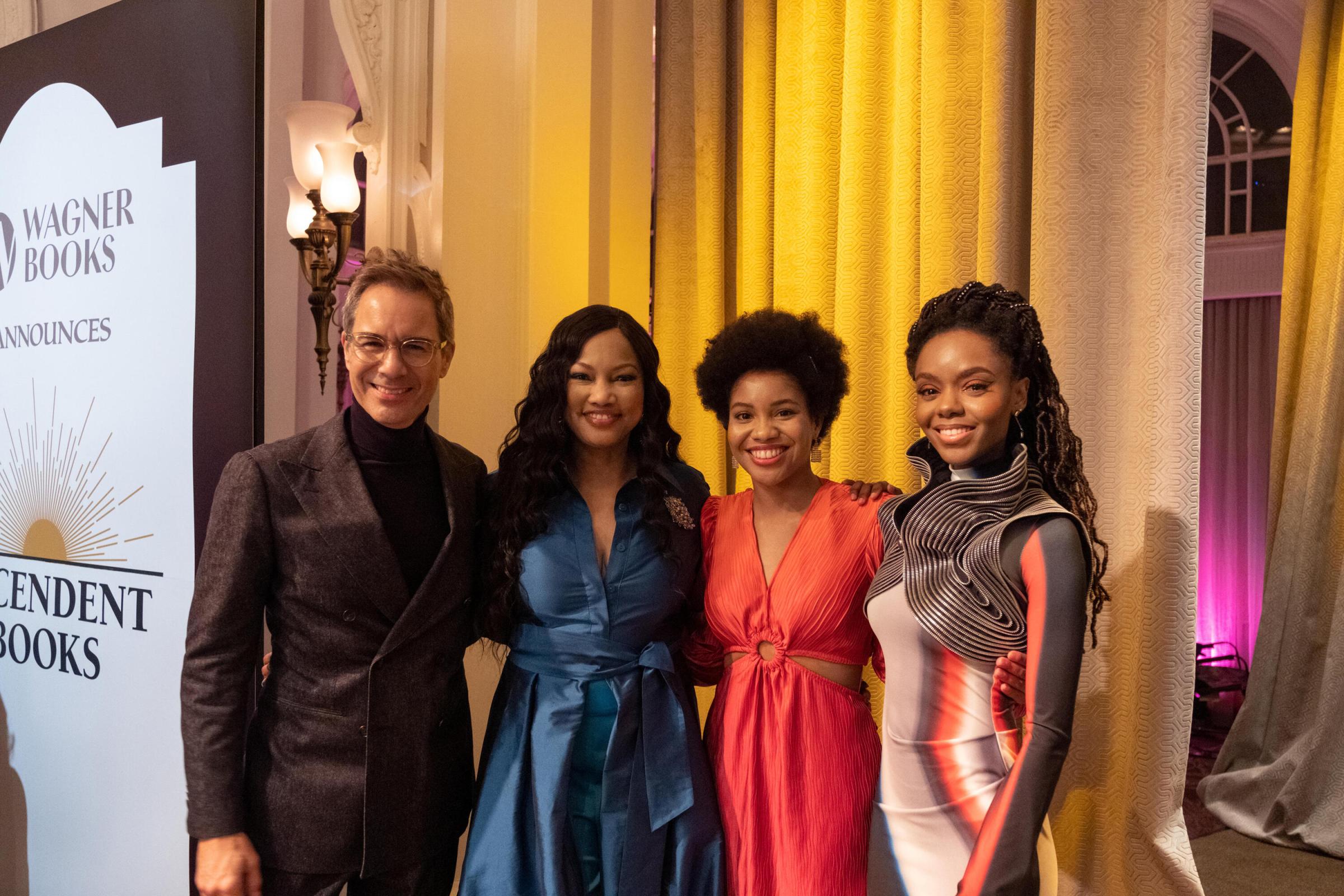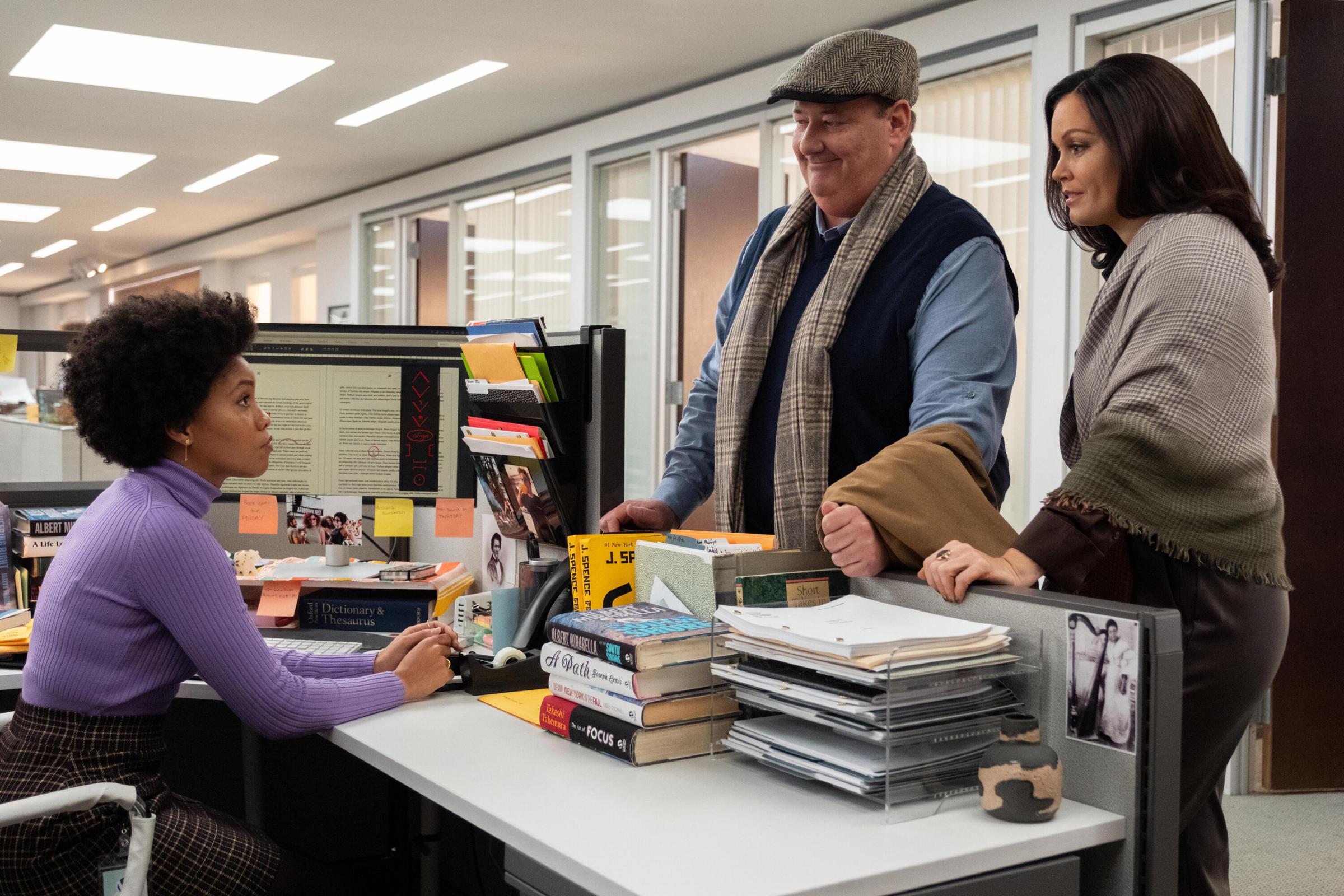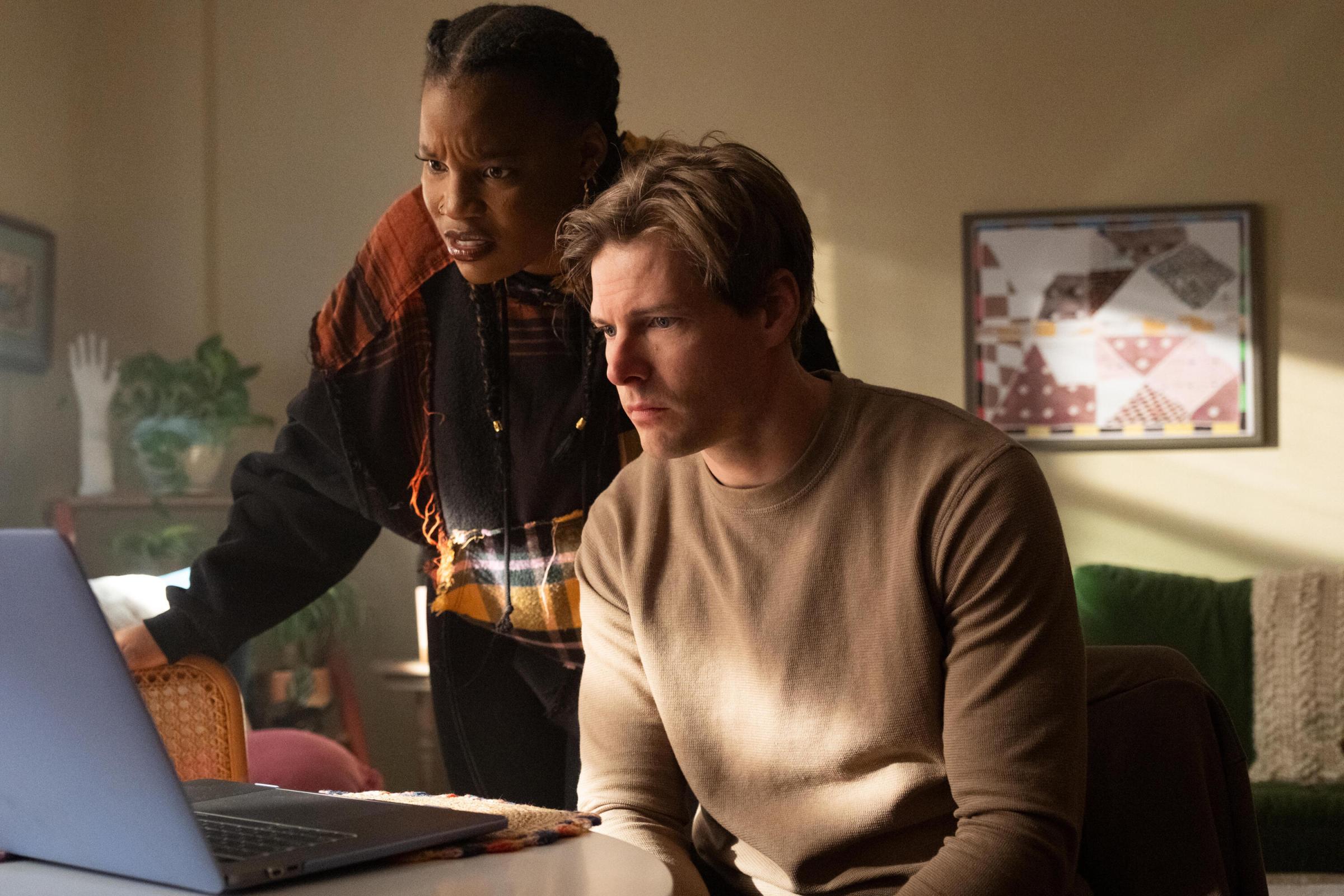The Other Black Girl is a story set in the rarified realm of book publishing—and a title whose genesis became a breathlessly discussed story within that world. Zakiya Dalila Harris’ debut novel satirizes not just the industry’s whiteness, but also its superficial attempts to diversify its ranks and output in response to widespread criticism. The subject of a 14-way bidding war, the book ultimately sold to Atria Books for the startling sum of $1 million. Even before its publication, in 2021, the author was collaborating with Rashida Jones on a series-length adaptation for Hulu. All of which further complicates the many messy questions about the kind of Black voices and stories that the white publishing establishment chooses to embrace that Harris raises in the text.
The show, whose 10-episode season hits Hulu on Sept. 13, liberally remixes the plot of the book, repurposing its characters, setting, and central mystery for a less introspective medium. That Harris, Jones, and showrunners Jordan Reddout and Gus Hickey achieve that synthesis without sacrificing The Other Black Girl’s ambivalence or thematic complexity is an unequivocally good thing. Its slow pace and hesitance to go all-in on any of the genres it touches are less fortunate carryovers from the novel. For a satire, it’s not as funny as you’d hope. For a psychological thriller, it lacks suspense. For a horror story, it’s not particularly scary.

When we meet 26-year-old Nella Rogers (Sinclair Daniel), she’s languishing as a longtime assistant—and the sole Black employee—at fictional prestige publishing house Wagner Books. (Harris spent three years on the editorial track at Knopf Doubleday.) Her dream is to become a full editor and publish important books by and about Black people, like her hero Kendra Rae Phillips, who shepherded Nella’s favorite book, Burning Heart, through Wagner in the 1980s. Now it looks like her boss, superstar editor Vera (Scandal alum Bellamy Young), is finally talking about a promotion. Equally exciting is the arrival of a new assistant, Hazel (Riverdale’s Ashleigh Murray), the eponymous other Black girl. Suddenly, Nella is no longer a minority of one.
The two women are, understandably, eager to make friends. But Hazel is not Nella’s mirror image so much as she’s the after photo to Nella’s before. Which creates some tension. While Nella hides in dowdy workwear, fashionable Hazel energizes the business-casual office in bright colors, mixed patterns, and a Telfar bag the size of a mini fridge. While Nella bristles at her white colleagues’ guilt and microaggressions, generous Hazel introduces them to delicious food and cool music as a bubbly representative of Black culture. And when Nella nearly gets fired for telling Wagner’s most bankable author, Colin (Brian Baumgartner), at Hazel’s urging, that his new book contains a racist caricature, Hazel turns around and charms him with effusive praise. Hazel is too smart to be oblivious, too savvy to be apathetic. She just transcends the daily indignities of being an entry-level Black employee in an overwhelmingly white workplace. “Sometimes,” she explains to Nella, “you just have to be the person they want you to be.”

It’s apparent early on that something is amiss at Wagner, beyond Hazel’s maneuvering. The company’s laid-back founder, Richard Wagner (Eric McCormack)—who’s such a blue-blooded insider, he’s literally married to a Kennedy—seems too cool to be true. When Nella looks in the mirror of the office elevator, the face staring back at her is Kendra Rae, who disappeared not long after Burning Heart became a phenomenon. An anonymous note appears exhorting her to “LEAVE WAGNER NOW.” Paranoia seizes hold of Nella. Her fiercely loyal best friend, Malaika (Brittany Adebumola), and well-meaning white boyfriend, Owen (Hunter Parrish), get worried.
This accretion of weirdness should transform The Other Black Girl from workplace comedy of manners into something more thrilling or chilling. Harris has cited The Stepford Wives and Get Out (which comes up in a snippet of self-aware dialogue) as inspirations, and the show’s plot certainly owes a debt to those narratives. Yet its atmosphere lacks the stylish intensity that enables those heady films to pack such a visceral punch. For the first half of the season, which moves sluggishly despite the half-hour episode length, the sinister secrets Nella will later uncover are foreshadowed, for the most part, through unimaginative horror tropes like institutional lighting that flickers menacingly. Then, when the truly wild revelations start to come out, the whole world of the show seems to massively underreact. Strong performances—notably from Daniel and Murray, who play Nella’s vulnerability against Hazel’s confidence, as well McCormack, who deftly balances charm and smarm—can’t compensate for indifferent direction.

Get Out and Stepford are a lot funnier, too. Book publishing, a theoretically high-minded but astoundingly homogenous and hierarchical industry in which power over underlings often functions as a consolation prize for underpayment, is ripe for satire. If the creators had sharpened its observational humor, the book might have fueled multiple seasons of incisive comedy. Instead, the jokes can feel like placeholders for better ones, the characters broad rather than specific. “Diversity matters!” Vera exclaims, then proceeds to explain to Nella why she must never speak another word about Colin’s offensive portrait of a Black woman. “I don’t even see color!” Colin protests, just like every other casually racist white person in pop culture.
These are not minor problems. Yet despite the style and pace, the show is hard to dismiss. Even when the satirical humor clings to cliché, Harris’ inquiry into the dilemma of a smart, young, Black woman striving to not just achieve personal success, but also support her community delves far beyond the surface. Do you cling to your principles at all costs? (Nella: “I don’t wanna succeed if it means being the only one. That’s not what success looks like to me.”) Do you “sell out,” focus on your own career, and hope the mainstream influence you gain is worth the compromise? (Hazel: “You catch more flies with honey.”) Is the other Black girl in the office an ally or a rival?
Harris, whose own career trajectory echoes aspects of both Nella and Hazel, thoughtfully weighs all sides of these questions without falling into the trap of overly tidy answers. And that’s worth celebrating. TV that hits all its technical marks is easy to find these days. Shows like The Other Black Girl, which raise insightful questions and leave you pondering, remain all too rare.
More Must-Reads from TIME
- Inside Elon Musk’s War on Washington
- Meet the 2025 Women of the Year
- The Harsh Truth About Disability Inclusion
- Why Do More Young Adults Have Cancer?
- Colman Domingo Leads With Radical Love
- How to Get Better at Doing Things Alone
- Cecily Strong on Goober the Clown
- Column: The Rise of America’s Broligarchy
Contact us at letters@time.com